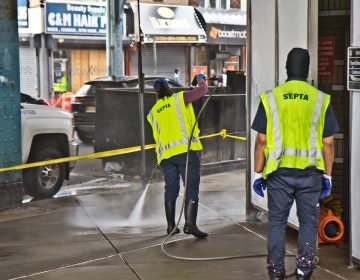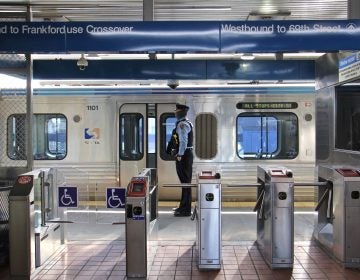Video: Can SEPTA balance its system upgrades with improving public safety?
WHYY hosts a live discussion on how SEPTA can balance the system upgrades it wants with the safety checks passengers need.
SEPTA — one of the largest systems in the U.S. — stretches through five Pennsylvania counties and three states, touting an annual ridership of more than 200 million.
With ambitious goals through the SEPTA Forward program, the transportation authority seeks to bring its system into the 21st century. Detailed plans include overhauling rail schedules, new signage, and a more streamlined experience.
However, many riders share concerns over the level of crime and unsanitary conditions. According to an NBC10 poll, 63% of respondents believe crime has worsened on SEPTA in the last year. Similarly, The Philadelphia Inquirer found aggravated assaults were up 80% as the pandemic drew riders away.
How can SEPTA focus on plans for the future while riders point to problems that have plagued the system for decades? WHYY convened officials and grassroots leaders to explore what SEPTA officials see as their biggest areas of improvement, how to convert motorists into riders, and what Philadelphians have on their public transportation wish list.
Kenneth Divers is in charge of SEPTA’s SCOPE program, which works to connect vulnerable residents to social services. He worked with officials to develop SCOPE in 2021, when an exorbitant number of used needles and body fluids shutdown the Market-Frankford Line’s Somerset station.
Charles Lawson, SEPTA Police’s acting police chief, says he regularly surveys stations and recognizes the level of violent crime in the city is “unprecedented.”
Outside of SEPTA, Dr. Zuline Wilkinson is the deputy director of Bebashi, where she works with low-income communities, providing health care referrals to relevant services. Benjamin She is a volunteer organizer for 5th Square, advocating for a more accessible and equitable public transit experience for all. Finally, Tamara “P.O.C.” Russell is a radio host and WHYY N.I.C.E. partner, using her microphone to amplify what Philadelphians think about issues that affect them.

Saturdays just got more interesting.
WHYY is your source for fact-based, in-depth journalism and information. As a nonprofit organization, we rely on financial support from readers like you. Please give today.





